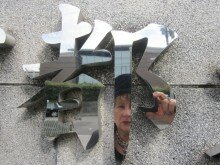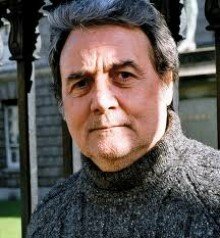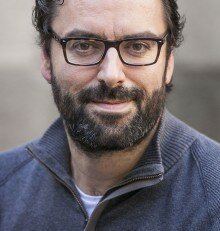On the writing of Nguyễn Tiên Hoàng
Nguyễn Tiên Hoàng (who also publishes under the pseudonym Thường Quán) has lived in Australia since 1974, and has translated into Vietnamese poems of Akhmatova, Mandelstam, Paz, Valery, Auden, Ashbery, Tranter, Peter Porter, and others. Many of Hoang’s poems are composed of streams of images and depict an often haunted yet always brightly illuminated world in which ghosts, memories and the mundanities of daily life intertwine.
Two of his best poems are powerful elegies to Vietnamese poets Le Dat and Thanh Tam Tuyen:
This, the feverish shout of the first Spring, a rusted key, a vacuum flask
on parole in a library, you translate texts as a job, live and think
war routine days simply continue from where the hills end . . .
on the street there’s always a new grammar,
for the immense, the incongruous and the lonely
(from ‘Elegy’, i.m. Le Dat, poet)
Hoang often employs a cut-off phrase, aposiopesis, as thought halts then glides off elusively, but traditional conclusion is not what these poems intend – instead they follow an impressionism that juggles hesitancy and certainty.
namings, christenings, rites of wronging
the other, dedications, mementoes as if
nothing had really
(from ‘They’)
Staccato phrasings build into suspense, wonder, elegy. Sometimes an image or statement is rapidly contradicted, discounting the poet’s attempted lyricism while intensifying it: “O stockinged dancers / secretly carrying hearts around / move like ancient figures / on a turning lantern / No, like after / a big flood” (‘For St Kilda Road’). This sense of speed often piles up to an almost deracinated finale, or catastrophe, as in the elegiac ‘Thursday April 21. Canberra’, where sentences crack apart, resembling the narrator’s dislodgement:
Under faded clouds, grains of my childhood
now I enter a Greek Orthodox house of worship in Kingston
swim in the rising tongues
of islands and archipelagos and the upturned seas
bathed in a hologram, sun washing over years and feet
held in caring hands, then
cut, roped, shifted, hanged up, nailed, in, out, under, over
dirt – warm, ever so, breathing
Intermittently there are surrealist touches of Breton, Apollinaire, even sometimes of Celan – a similar refusal of acquiescence, even to lyricism – and many poems are almost riddles of communication and withdrawal, where the tension between reflection and living experience can never be resolved. In fact, this is the poem’s celebration — this “dense world of spirits and ghosts” (‘The Fifth Full Moon’) that the poems create. It’s not just the strikingly vivid scenes that command attention but also the theatrical control that unwraps these daubed images across time, as if with a hand-held camera.
Vietnamese, like Chinese and many South East Asian languages, has only one tense, and this may inform Hoang’s poems that swing through time, where the past has equal agency, and everyday banter wrestles with transcendence. Perhaps images, more than verbs, clip the poems in space. References to the seasons and to paintings also layer his work. Some elegies, such as ‘In Memoriam Bruce Keller’, work in more direct language, with its reference to Waiting for Godot conjuring an equally Sisyphean cycle. Beckett’s influence may also lie in the interrupted conversations of ‘Travel’: “I am about to // never mind, you say // ice and showers / christmas of hail // leave the money // leave // the dog will bark, a little // keep it mimimal // keep”. The repetition of “keep” throughout the poem mimics the recording camera, and this motif recurs in Hoang’s work such as ‘Theatre at Cồn Market’ which recalls childhood visits to a local cinema featuring heroic adventures, Westerns, and Chaplin comedies: as the film usually ‘skips’, the kids imagine the missing story – “The first attempt at creation – fill in the blank”. The final film is a documentary of Auschwitz ,and the poems ends “Cold season, cold day, cold memory”, perhaps presaging not only loss of innocence, but also impending war. Nguyên Tiên Hoàng’s poems vary greatly in style, from such lucid simplicity to the exploratory, restlessly tipping language askew.







